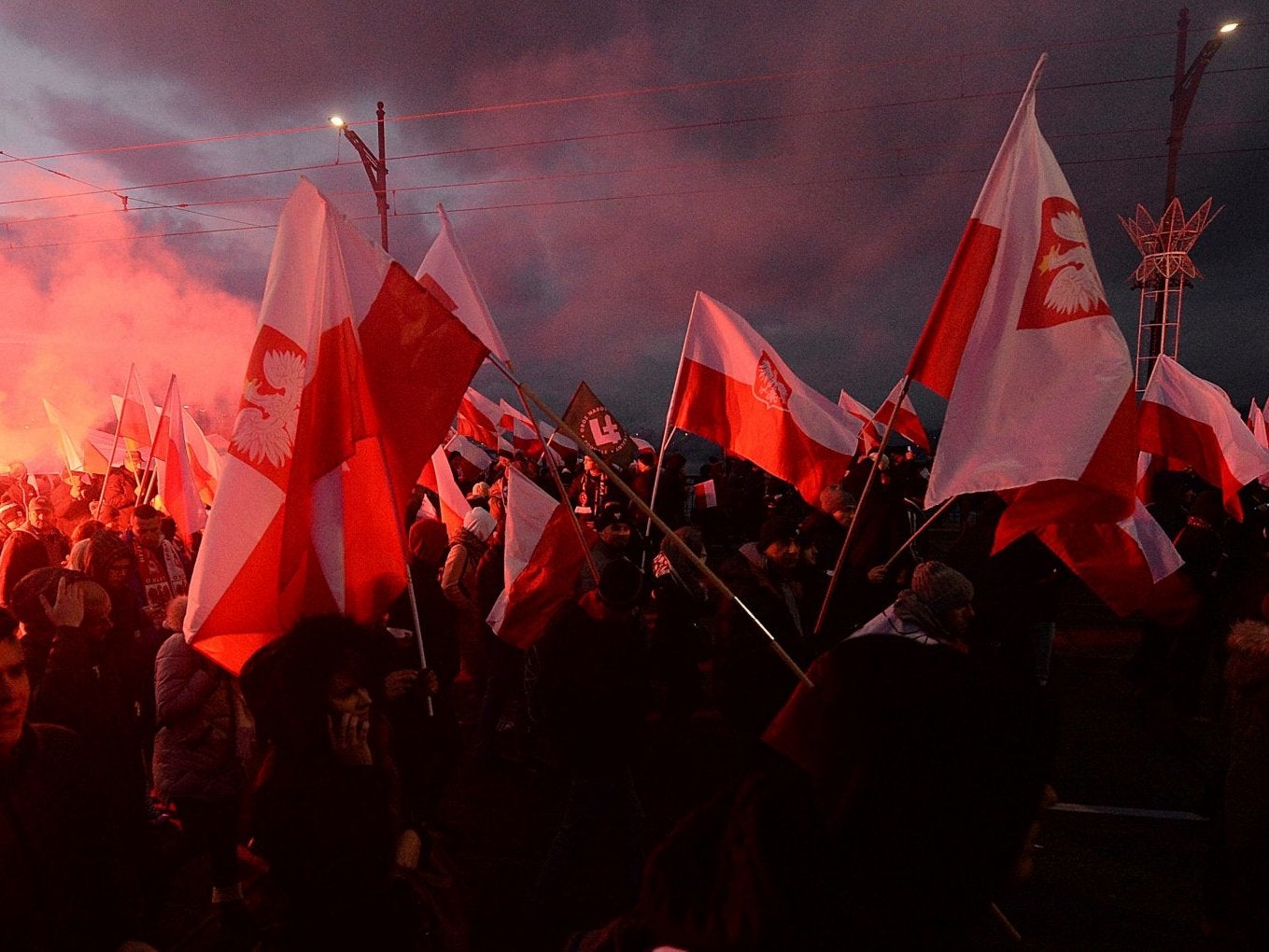The decision to ban Warsaw’s nationalist march has given Poland hope to fend off the far-right
Warsaw is likely to lead the re-birth of more liberal and colourful politics in Poland, which would eventually challenge the populist right-wingers that currently govern it

Your support helps us to tell the story
From reproductive rights to climate change to Big Tech, The Independent is on the ground when the story is developing. Whether it's investigating the financials of Elon Musk's pro-Trump PAC or producing our latest documentary, 'The A Word', which shines a light on the American women fighting for reproductive rights, we know how important it is to parse out the facts from the messaging.
At such a critical moment in US history, we need reporters on the ground. Your donation allows us to keep sending journalists to speak to both sides of the story.
The Independent is trusted by Americans across the entire political spectrum. And unlike many other quality news outlets, we choose not to lock Americans out of our reporting and analysis with paywalls. We believe quality journalism should be available to everyone, paid for by those who can afford it.
Your support makes all the difference.Each year on 11 November, Poland celebrates its Independence Day. It has, however, long ceased to be a day of national unity and has effectively became a ground for far-right riots, with the foreign residents of Warsaw being advised to stay at home. The far-right groups are filled with Polish nationalists, many of them come armed with baseball bats, covering their faces with scarves and waving far-right symbols while parading under police protection.
Almost every year the official demonstration of the far-right would turn into riots. One year a transmission vehicle of the TVN television channel, which is considered liberal by the far-right, was set on fire, bus stops were vandalised and a number of liberal protestors were beaten up. Every year the nationalists would burn the rainbow monument in the city centre. So, eventually, the municipal authorities decided it was safer to remove it all together.
This year, the celebrations were meant to be more special and more peaceful. After all, this is the 100th anniversary of Poland’s independence. The right-wing government has long trumpeted the anniversary as special and kept spending millions on various projects to mark the occasion. The current government is also friendly with the far-right groups and has often defended them in the past and relied on their support.
It could have been expected therefore that the governing Law and Justice party would be able to tame the far-right’s excesses and make a genuine effort to display national unity on the day. Today, we know that nothing of the sort will happen. Clearly afraid of the possible fallout from the event and after having fed nationalist sentiments for years, the populist government decided that it was not able to control the demonstration and withdrew its official participation.
This in effect would have meant that the only official demonstration to celebrate Poland’s centenary of independence would have been run by the angry and xenophobic far-right. It was under these conditions that Warsaw’s mayor, Hanna Gronkiewicz-Waltz, decided to ban the event. The mayor had no choice but to act this way for several fundamental reasons.
Firstly, no other city in the world suffered as much at the hands of extreme nationalists as Warsaw did. In May 1945, when the war ended, Warsaw was nothing but a sea of ruins. Its Jewish population was obliterated, hundreds of thousands of civilians were killed or expelled following the failed uprising in August 1944. It would be utterly unacceptable that the face of the independence celebrations in Warsaw would be the face of the ideological heirs of the Nazis.
Secondly, Poland’s current right-wing and populist government made an absolute mess of the celebrations. For months they were trumping up the message of grand celebrations, then just a few days ago they announced they would not participate in them. Now, apparently, they’ve had another change of heart after declaring that 12 November would be a bank holiday. It is in four days and all businesses, schools and universities have to adjust to accommodate to these constantly changing plans. The mayor, who is responsible for the security and safety of the Warsawions, cannot rely on the whims of the undecided few gentlemen who are unable to make up their minds.
Thirdly and lastly, Warsaw is a thoroughly liberal city. In the local elections that took place only three weeks ago, Warsaw’s mayorship was won by the candidate of the liberal opposition in a landslide. This happened despite massive support for the government and a campaign sponsored by state-owned companies for a Law and Justice candidate.
Warsaw is likely to lead the re-birth of more liberal and colourful politics in Poland, which would eventually challenge the populist right-wingers that currently govern it. The angry and xenophobic far-right does not fit into the city that Warsaw is today.
Join our commenting forum
Join thought-provoking conversations, follow other Independent readers and see their replies
Comments